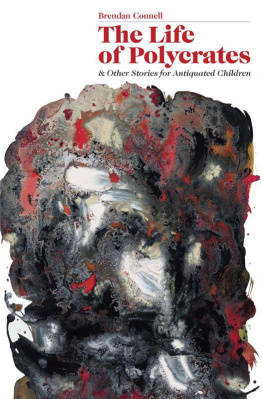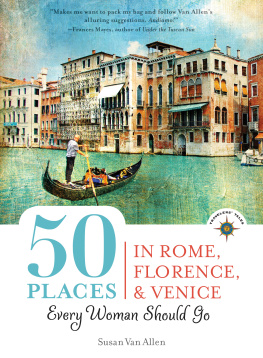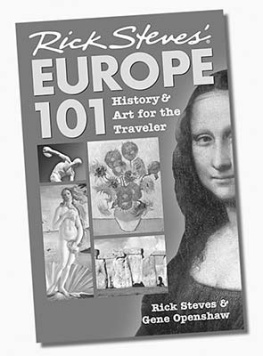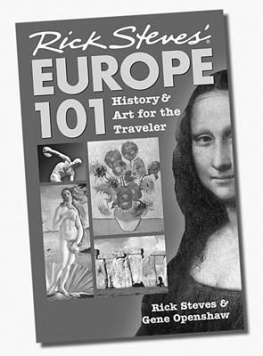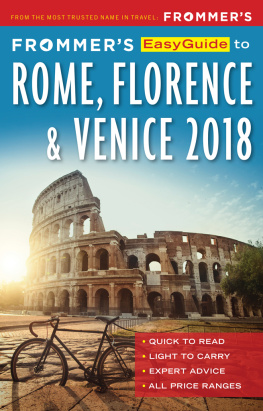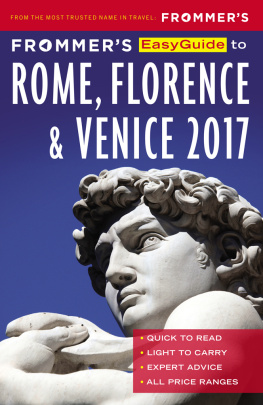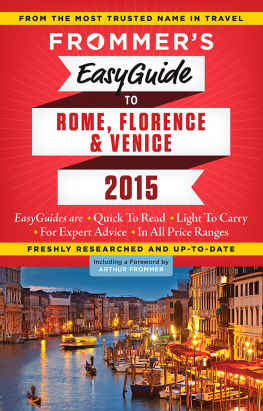(c) Brendan Connell 2005
The Translation of Father Torturo
To Frederick William Serafino Austin Lewis Mary Rolfe, Baron Corvo, for the design which I so meanly twisted.
Religion is a savage thing, like the universe it illuminates;
savage, cold and bare, but infinitely strong.
Robert Louis Stevenson
The Ebb-Tide
Preamble
Hal-le-lu-jah, hal-le-lu-u-jah-jah!
Clouds of yellow smoke curled upward, like slowly revolving apparitions in the light of the immense and stately candles which were placed, dozen upon dozen, throughout the interior of the cathedral; the ceiling, the cupola, seemingly as high over head as the night sky thoroughly Romanesque, Byzantine, ornate dcor protruding from all sides, dripping from above like stalactites, surging from the walls in carven stone and bronze panels, rising in grand pillars, winking in frescoed patches and chapels: the depiction of men at arms and others martyred; a few modern contrivances, the worst of contemporary art, dropped in, for juxtaposition, ugly slashes to enhance the already turbulent presence of the bizarre.
Hal-le-lu-jah, hal-le-lu-u-u-jah-ah!
The small figure stood before the seated gathering. She sang into the microphone in an untrained, slightly cacophonic voice that was yet buttered with faith. Sheathed in the coarse, clean costume of her calling, vestal white; eyes like raisins behind simple spectacles; her voice uttered that modulated praise to Him, Master of all human affairs, Creator and Ruler of the universe.
The smoke plumed upward: aromatic, reminiscent of decomposed saints, hypnotic as it joined to the rhythmical chanting.
A beggar woman, a mad woman, obese and malformed (the majority of the weight being confined between her lower torso and hams), struggled along one darkened side of the cathedral, the struggle all the more grim for the radical difference in length between her left leg and right. The disparity was made up by a proportionate wooden heel, which shuffled and clapped along the floor. Others, healthy in leg if not feeble in mind, lay their hands on the sarcophagus of Saint Anthony.
But the vast majority of the visitors, pilgrims, rushed with remarkable haste onward, towards the brain of the cathedral. There a queue had formed and people pushed forward impatiently, rising on tip-toes and craning their necks. A child, a veritable cherub, innocent of social manners, wound its way ahead of the rest, its grandmother following in its wake, apologising as she went. It mounted the low steps on hands and knees and then, before the glass case, rose and stretched its arms out, the people parting on either side.
Excuse me! Excuse me! the grandmother said, hastening forward. And, with the words, Oh, bambino, on her smiling lips, she hoisted the child up, so it could view what it had so impetuously sought after: A tongue mounted on a pin, like a dried cactus; a jaw, gums intact, teeth the colour of gorgonzola.
Chapter One
When Father Torturo awoke it was 3 a.m.
He climbed out of the confessional, the base of his black robe riding up, as did the leg of the pants beneath, revealing an olive coloured, hairy strip of limb, the ankle dancing in a limp sock, the foot filling out a well polished shoe.
Oof! he said, cracking his back. What an uncomfortable place to fall asleep in.
He rubbed his forehead, stretched himself and blinked his eyes two glassy balls, sangue de Cristo, nearly as red as the glasses of merlot he had indulged in earlier: a bottle between himself and Bishop Vivan, and then a second to himself while alone in his room reading over the Dissertatio Epistologica de Ortu Animai Humanae of Gaultero Charleton.
A man in his mid to late-thirties, of good build, with an aquiline nose and black, slightly thinning, streaked-with-silver hair, Father Torturo was, at least from appearances, the standard Italian Catholic priest. His features were sombre and serious. Amongst his brothers he was known for his thorough knowledge of scripture and adamantine devotion to the calling; the lay-people admired him for his steady demeanour and the sound brevity of his advice.
What should I do? a woman once asked him. I feel that I have nothing to live for.
Nothing to live for? he had replied, without flinching. One would never guess it judging by the size of your paunch.
By the scintillas which danced in her eyes and the foul rigour of her breath, it could be seen that, if the will to live had been threatening extinction within her, it was now revived to a healthy state of excitation. He noted that many good Christians liked a little rough treatment now and then, them gaining a certain morose satisfaction from being stroked with the fibres of sanctity. Often they needed to be whipped into the joy of life, prodded into the neighbourhood of the inviolable.
As a child he had been brutal, a kicker of cats, a resolute swatter of flies one who delighted in passing gas against lighted candles. As a young man, under the auspices of the church, he had grown hard, educated and inverted. He had studied the lives of the Saints, from those of universal fame down to others, who had as little renown as pismires. He savoured their histories, their sufferings, lapping them up as a poisoned man would drafts of emetic. He strove to lighten the darkness within him, and for every match he struck, a gust of cold, midnight wind responded, leaving him strolling sightless through bleak, empty space. As a man he was deliberate and blunt, a devotee of the Crucifixion.
The church was empty. He strode along its floors, his heels echoing through the vast chamber. His lips twitched slightly as he thought over the confessions of the evening. It was a thankless task, listening to peoples disgusting trivialities. He glanced over toward the chapel of St. Felice, his gaze catching the tints of white flesh from Altichiero da Zevios magnificent fresco: the ascetic limbs of a young man pinioned to the cross a man scarcely younger than himself; his life-blood flowing easily from his crimson wounds. A well formed horses ass was nestled below, amongst indifferent onlookers. And now, because of this (those feeble drops of blood sprouting from effeminate palms), the porches of his, Xaverio Torturos ears, were almost daily flooded with poison.
Latrina ! he said aloud, his voice like a belch of geophysical steam.
Yes, he was more or less the toilet for the sins of others; the begrimed receptacle for their offences. Over the years, what filth had he not been made to bath in, what garbage had he not been made swallow? The infidelity of women, the tomcatting of men, the gaunt perversions of the old, the raucous hellfire of the young. His heart was clouded, darker than the middle night and the shadows which lapped across his path, licking over his perambulating feet and rustling robe. He felt impure: the taste of old wine still clung to his tongue, the sound of sin still tingled his ears.
He fingered his rosary, turned to the right, crossed in front of the High Alter, stopped and looked: There was another Jesus; the Jesus Christ of Donatello, cast in black bronze, emaciated, suffering dying the death of the righteous. The angels danced at his pierced feet, sung and played on harps and flutes. There were the panels depicting the miracles of Saint Anthony, which, as incredible in detail and craftsmanship as they were (profound in their beauty), inspired nothing in the priest but rancour, a feeling of ill will, as if his due rights, his fortune, had been unjustly snatched from him and cast to the paws of the lazy, sensual crowd: those hundreds of thousands who came each year, dined amply on baccala alla Padovana, and then, bellies distended with feed, came and set their gazes and greasy palms on the trophies the bones that might have been his very own for all he had suffered, laboured in the cause of the Law and been spat upon with the trifling matters of cheesemongers wives.
Next page
